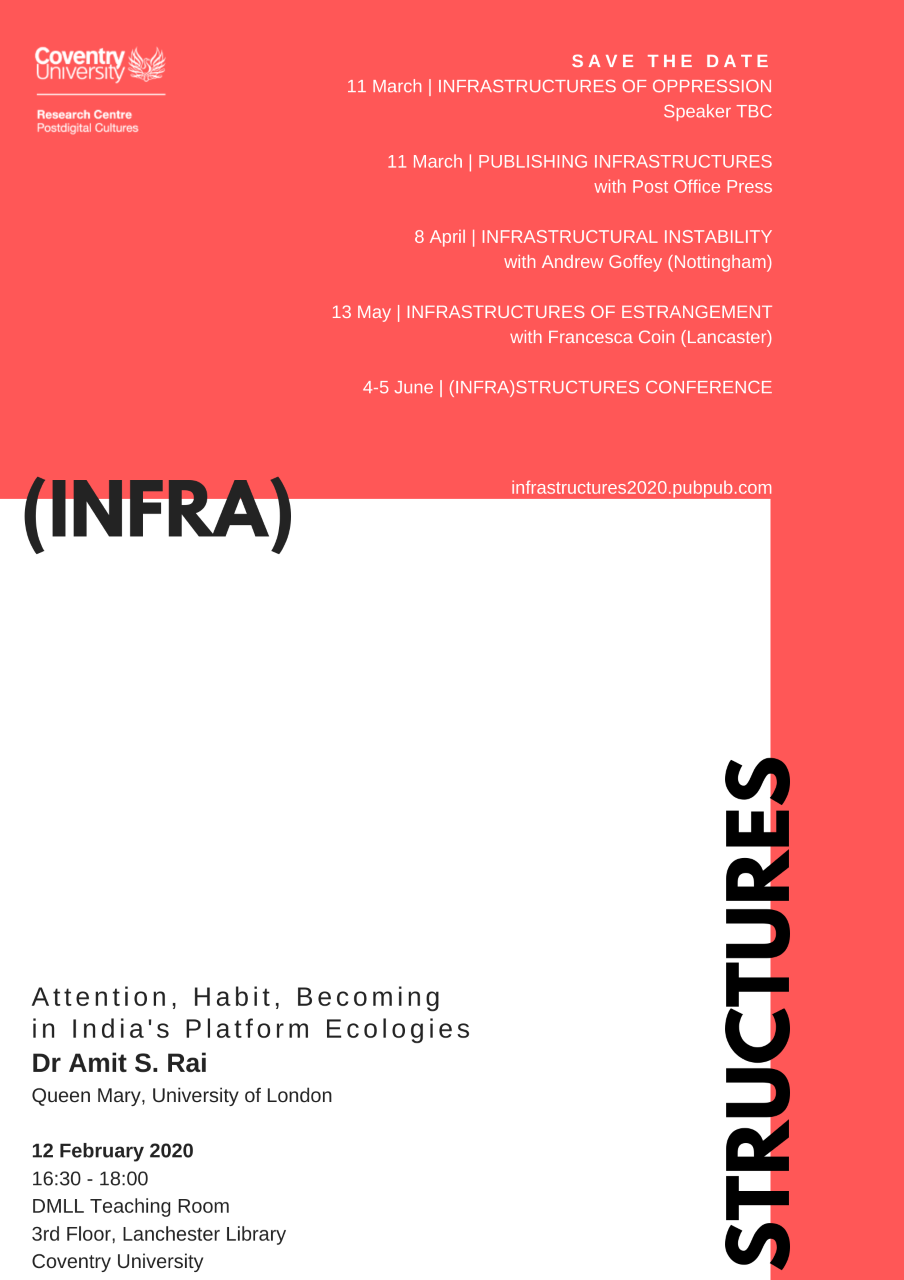Attention, Habit, Becoming in India’s Platform Ecologies
 Friday, February 7, 2020 at 12:46PM
Friday, February 7, 2020 at 12:46PM 
Attention, Habit, Becoming in India’s Platform Ecologies
This presentation of on-going research considers participatory action research on the political economy of India’s media ecologies, or what I will also refer to as a decolonising political ecology of media. My interest here is in practically diagramming an antogonistic domain of platform monopoly, information control, value extraction, dispossession, and exploitation, and also digital piracy, technological tinkering and repurposing, and collective lines of autonomous flight and social reproduction that techniques of control attempt to capture and revalue: this is the simultaneously global and singular domain of the reterritorialisation and deterritorialisation of attention and habit today. In recent studies, the political economy of media has expanded beyond ‘Western’ capitalist intellectual property regulatory regimes and complexified beyond the (post)human; in these researches ecological thought has become more materialist and processual. These new materialist methods shift our focus from the social construction of fetishized, reified media platforms (film, TV, radio) toward the actually existing infrastructures of communication and information, their complex processes of value and sense, their vector-tendencies of resistance and violence within which all forms of media are co-evolving today. This presentation considers the practices and discourses surrounding 'jugaad' (everyday workarounds) and social media platforms in India in relation to recent articulations of political theory: Invisible Committee's Now (2017) and Mario Tronti's Workers and Capital (1965).
Dr. Amit S. Rai is Reader in Creative Industries and Arts Organising at Queen Mary, University of London, where he has also taught critical marketing studies and business ethics. He is author of Rule of Sympathy: Race, Sentiment, Power 1760-1860 (Palgrave, 2002) and Untimely Bollywood: Globalization and India’s New Media Assemblage (Duke UP, 2009). He has taught at the New School for Social Research, Florida State University, Tata Institute of Social Sciences, and Lorton Maximum Security Prison. His current research touches on critical management and organizational studies of the creative and cultural industries in the UK and India, the gendering of affective labor in social reproduction in India, media practices of commoning, and hacking and piracy ecologies in the UK and South Asia. His monograph on work-around practices in Indian urban digital ecologies, Jugaad Time: Ecologies of Everyday Hacking in India, was published in 2019 by Duke University Press.
 Gary Hall | Comments Off |
Gary Hall | Comments Off | 






